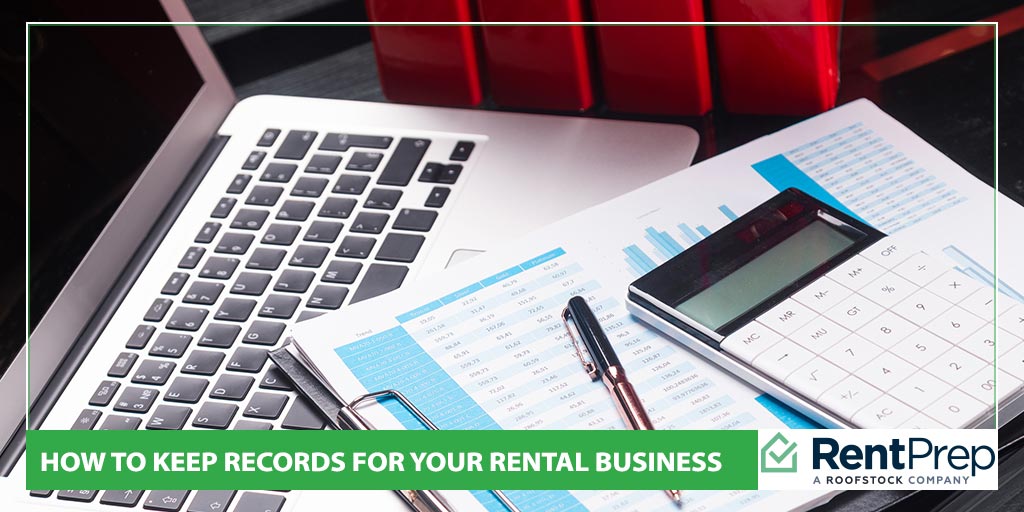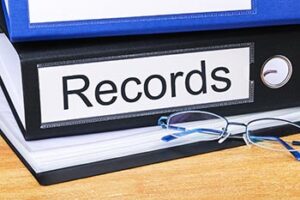
There are a lot of things that you need to keep track of as a landlord. From tenant information to contracts, recordkeeping will be an essential part of your business. In addition, you will probably want to continuously track your investments, profit margins, and more so that you can continuously improve your business.
Beyond keeping records for your own purposes, however, you also need to keep rental records as a legal obligation as well. For tax auditing and the possibility of a court case between you and a former tenant, there are specific types of records that you need to keep on file. Without these documents, you could find yourself facing big fines!
Still, it isn’t reasonable to believe that you can keep every file that you’ve ever generated. What, then, is the right balance? How much do you keep, and what can you let go of?
Today, we’ll give you an overview of how to keep records for your rental business. While you will need to make some adjustments for your specific needs, having this general outline can guide you to create better recordkeeping practices.
A Table Of Contents About Rental Record Keeping
- What Records You Should Keep
- How Long To Keep Your Records
- Why Records Must Be Kept
- Which Organizations Require You Keep Records?
- Top Tips To Keep Your Records Organize
What Records You Should Keep

The first thing that landlords often wonder about as they work in the rental business is what records to keep for rental property tracking. Most do not want to keep every single document, but they aren’t sure what is OK to let go of and what should remain.
Generally speaking, small landlords should hold on to the following documentation:
- Record of rental income
- Record of rental expenses
- Documentation to support that income and expenses (including receipts and other types of proof as needed by the IRS for the expenses)
The final point is often the most strict. If you are expensing out things like travel and entertainment for your taxes, you will need to have very clear proof that it was a business-related expense, as these are some of the things that the IRS examines most closely.
It’s important to note that you should get into the practice of keeping your records of income and expenses separately for each property. Doing this prevents confusion, and it makes filling out your Schedule E paperwork much easier later on.
Beyond income, expense, and tax documentation, you will also want to keep records of the following according to the American Bar Association:
- Lease agreements
- Tenant applications (rejected, accepted, and withdrawn)
- Sent and received inquiries
Having these documents on file is important in case there is ever any question about what type of rental occurred or why a tenant was rejected in the past.
Landlords With Employees

If you have created a separate business entity to run your rental properties and have employees working with you, you will need to keep additional documentation for your taxes. For example, you will also need to keep these for four years:
- Payroll tax records
- Employment tax returns
- Withholding records
To learn more about how these work, check out the Employer’s Tax Guide created by the IRS. Your state may have its own requirements as well, so be sure that you check into that information as well.
How Long To Keep Your Records
Another common question that landlords have how long to keep tax records for rental property investment, taxation, and tracking purposes. It can be hard to know what the official requirements are and even harder to find an exact answer.
Unfortunately, there is a reason for that problem. While typically you only need between four and seven years of records depending on the type of information on the records, there are times when you may be requested to pull up records even older than that.
Here is the guideline that most landlords follow:
- The IRS recommends that you keep tax-related documentation for at least three years after filing the applicable taxes.
- Due to the possibility of litigation with former tenants and other business-related issues, however, most rental property landlords will keep records for a minimum of seven years.
To keep yourself in the clear, we recommend keeping your primary documents for seven years. After that, reducing that documentation to the bare minimum is more than acceptable.
Which Organizations Require You Keep Records?
In particular, the IRS is known for requesting older documents whenever they find some potential problems with your records. Landlords ask themselves: How long do I keep records for the IRS regarding a rental income property?
We mentioned above that you should keep records for at least three years, but the IRS can extend the documents needed another three years if there are discrepancies found in your taxes. If an attempt is made to write off debt incorrectly, they can go back as far as seven years into your records.
You shouldn’t need records for more than seven years for any organization other than for your own record keeping purposes.
Why Records Must Be Kept
As you learn more about how to keep records for your rental business, you might begin to wonder why it is that you need to keep the records at all!
Tax Audits
Simply put, the IRS requires that all individuals, businesses, and other entities keep all tax-related documents for at least three years after filing the applicable taxes. This is because there is always a chance that your filed taxes will be flagged, and this would then require an audit.
Something as simple as mistagging your deductions could flag an audit, so it is always good to be prepared.
For an audit to happen smoothly, efficiently, and accurately, however, you will need to have the same documentation that you used when you originally filed your taxes. Without these documents, you may have a hard time proving what you wrote in your tax filing.
Litigation
Another reason to hold onto documents, and part of the reason why we recommend that you keep documents for up to seven years instead of four, is that you might need the records to prove your case in court.
While no landlord hopes to ever have to deal with this type of situation, there are times when a former tenant or another party may take you to court over a past issue that was never resolved. This means that paperwork you filed years ago may suddenly be relevant again. If you don’t have it, a case could come down to your word versus their evidence.
Top Tips To Keep Your Records Organized
These tips on how to keep records for your rental business can help to ensure that you are less likely to make any accidental mistakes that could wind up costing you. By incorporating these best practices into your business, you’ll have better tools to track your business and also to protect yourself from any audits or litigation.
Choose Digital Or Paper
It’s great to decide early on if you are going to do your income and expense tracking digitally or physically. Each method has its benefits, but it is up to you to know what is most functional for your needs. If you aren’t computer-savvy, stick to traditional tracking ledgers.
You can also decide if you want to keep digital copies of receipts, rental paperwork, and more or if you prefer to have physical copies. Both methods are acceptable by agencies today, and both methods have both pros and cons.
Have A System For When To Let Go
With such a complicated system of needing to keep records for long periods of time, it can be hard to know when to let go of paperwork. The best way to ensure that you aren’t keeping more than you need to is to create a bi-annual system of moving old documentation out of your life.
Create specific rules for when each type of document will be either moved into deep storage or shredded. For example, you could use these rules:
- Keep warranty sales receipts for as long as the warranty is good. Then, shred it along with expired warranties.
- Keep copies of old insurance policies for three years; then shred it.
- Keep sales receipts for all repairs and capital improvements for rental properties until you sell it.
- Move tax documentation older than three years into deep storage. After seven years, it can be shredded permanently.
Your list and decisions about when to get rid of things are ultimately up to you; the key is to create a process of managing the amount of documentation you have in storage. If you do not have a system, you will quickly find yourself surrounded by a mountain of papers.

